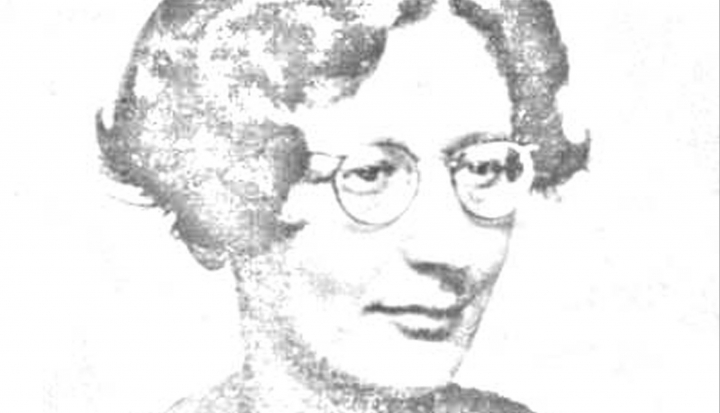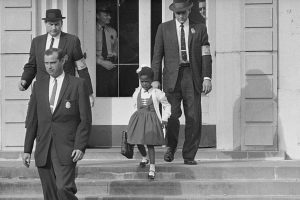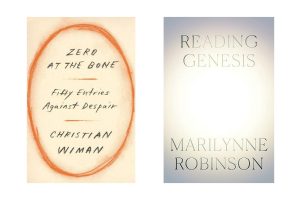The year was 2003. I was a 19-year-old sophomore at Sarah Lawrence College, a small liberal arts institution just outside New York City. For many young people, a university education is a mind-opening experience, a challenge to assumptions held since childhood. This was especially true for me. During my first week of college classes, I stared in shock as a plane hit the World Trade Center. Soon after that, I watched men and women my age and younger go off to war. Growing up in a sheltered suburban environment during the relatively complacent “end of history” 1990’s, I never thought I’d see this kind of violence.
Today, a decade and a half later, I still struggle to make sense of the world. Every day seems to bring more bad news: another terrorist attack, another species going extinct. Occasionally I return mentally to my college self, remembering the classes I took, the amazing teachers with whom I studied. It was in college I was first introduced to the writings of an exceptional philosopher who herself lived during a time of crisis.
Simone Weil (1909–1943) was born on the eve of World War I and died in the midst of World War II. Even as a child she could not ignore the sufferings of others: She gave up sugar at the age of 6 in solidarity with the soldiers entrenched on the Western Front. As a young woman she temporarily left her teaching job to work in an auto plant and become a labor activist. She fought in the Spanish Civil War on the Republican side. After her parents brought her to the United States during World War II, she voluntarily returned to Europe in the hope of working with the resistance—a decision that led to her premature death at the age of 34, largely due to her refusal to eat more than her ration. “It is an eternal obligation toward the human being not to let him suffer when one has the chance of coming to his assistance,” she declared.
I first learned of Weil through a Hungarian American philosophy professor named Elfie Raymond. Herself an exceptional woman (she was rumored once to have thrown an inkwell at French philosopher Jacques Derrida), Raymond embodied some of the characteristics I see in Weil.
In an essay on education, Weil states that its purpose is not to fill students’ minds with information, but to cultivate habits of character. “Although people seem to be unaware of it today, the development of the faculty of attention forms the real object and almost the sole interest of studies,” Weil says. “Most school tasks have a certain intrinsic interest as well, but such an interest is secondary. All tasks that really call upon the power of attention are interesting for the same reason and to an almost equal degree.”
For Weil, attention is the prerequisite for truly understanding and empathizing others. Unfortunately, that has never been my strong suit. Even in 2003, when I was not a daily internet user and did not yet own a mobile phone, I struggled to keep my mind focused on the person or problem in front of me. Professor Raymond noticed this and urged me to “come out of myself,” becoming more aware of my surroundings. It was not an easy task and even now, a professor myself, I still struggle every day.
While I first heard Weil’s name from Elfie Raymond, it would be seven years before I got around to reading her. Working as a graduate teaching assistant at the University of Toronto for a literature course titled “Ancient and Medieval Literary Modes,” I was encouraged to read Weil’s famous essay “The Iliad or the Poem of Force,” in which she interprets Homer’s epic in light of her own time. She notes that in the Iliad there are no real winners or losers, no “good guys” or “bad guys.” The real hero of the poem is force, an unalterable reality that humans must learn to treat properly: “Only he who has measured the dominion of force, and knows how not to respect it, is capable of love and justice,” she writes.
Whenever I read Weil’s words, I ask myself the same question. What would she think of the world we inhabit today? The fact that academic interest in her work has skyrocketed in recent years suggests that many people have the same question. What would she say about Brexit, a U.S. president elected on a platform of nativism and xenophobia, and the rise of far-right political parties across Europe? What would be her response to the five-year civil war in Syria and the ongoing reality of global terrorism? What would she say about environmental degradation and the mass extinction of species that human activity has caused? What would she make of artificial intelligence and the increased power that humans are choosing to give machines?
I am quite certain she would not be surprised. After all, she predicted Hitler’s rise to power when few were able to believe in that particular reality; she also predicted that petroleum, rather than wheat, would become a source of international conflict. If Weil could speak to us today, I know that she would offer no simple clichés or comforting platitudes. But she would also urge us not to succumb to defeat or despair. Because even as she witnessed Europe collapsing around her Weil maintained a remarkable and indeed perplexing level of faith.
At first glance, the politically radical, brashly intellectual Weil seems an unlikely mystic. One striking feature of her sensibility is her marked preference for reason over emotion; she is decidedly unsentimental. Weil eschewed all romantic relationships, believing, quite fairly, that they would interfere with her activism and academic pursuits. While she did have many friends and was noted as an extremely attentive listener, she avoided demonstrating physical affection, even with other women.
In her writings Weil repeatedly reminds us that true love is indistinguishable from justice and friendship depends on a certain amount of detachment. “There is not friendship where distance is not kept and respected,” she writes. “When Christ said to his disciples, ‘Love one another,’ it was not attachment he was laying down as their rule.”
For me love among friends—what C. S. Lewis in his Four Loves (Harvest Books) calls philia—is all about attachment, warmth, and as much physical affection as the beloved person finds appropriate. But for Weil, friendship is the perfect synthesis of necessity and liberty. A certain distance is necessary for human intimacy, just as God’s apparent absence is necessary for our encounter with the divine. “God can never be perfectly present to us here below on account of our flesh. But he can be almost perfect absent from us in extreme affliction. This is the only possibility of perfection of us on earth. That is why the Cross is our only hope,” Weil says.
This discussion of affliction—which according to Weil is different than suffering and involves both body and spirit and subjecting the afflicted to a high degree of humiliation—recalls another provocative part of Weil’s exhortations: her call to self-denial. One frequent motif throughout her work is food and eating. This theme takes on a disturbing character when we consider her death, which very likely could have been delayed had she followed her doctor’s orders and allowed herself adequate nourishment.
In her essay “Forms of the Implicit Love of God” she declares that in heaven the acts of looking and eating will be the same; however, on earth this cannot be so. “It may be that vice, depravity and crime are nearly always, or even perhaps always, in their essence, attempts to eat beauty, to eat what we should only look at. Eve began it. If she caused humanity to be lost by eating the fruit, the opposite attitude, looking at the fruit without eating it, should be what is required to save it,” she writes.
It fascinates me that Weil’s first mystical experience was brought on by George Herbert’s poem “Love III,” which ends with the act of eating: “You must sit down, says Love, and taste my meat: / So I did sit and eat.” It is likewise interesting that of all the forms of Christianity available to Weil, she was drawn to Catholicism, whose central form of prayer is the Eucharist, a ritual meal. Perhaps the mystical ecstasy that Weil experienced was in large part what helped her to renounce earthly pleasures: Having tasted the food of divine Love, how could any human fare be nearly as delicious?
Nevertheless, Weil’s ascetic impulse proves quite challenging to me, a lover of good food and wine and of dance and affectionate physical touch. Her words and actions force me to consider that love is more than a warm feeling toward my fellow creatures—even if that warm feeling may lead to action. Instead, love must emerge from one’s whole being, intellect as well as emotions, and pour outward to embrace the whole world.
Looking at our deeply unjust world, I again ask myself what Weil would be doing if she were alive today. Would she be now, as she was then, a dedicated teacher, seeking to cultivate in her students habits of attention and empathy? Would she be working to help and settle the boatloads of refugees arriving to Europe each day? Would she come to the United States and move to California to harvest grapes or cut garlic alongside migrant workers? What would she call upon us to do?
I am quite sure of one thing: In an age of fake news, echo chambers, and ever-greater ideological division, she would urge us to stop, think, listen to one another with patient attention, and refrain from identifying too closely with any ideology or institution. It is interesting that while Weil’s mystical experiences led her to a deep love of Christ, she refused to formally enter the Catholic Church. “Nothing gives me more pain than the idea of separating myself from the immense and unfortunate multitude of nonbelievers,” Weil wrote in a 1942 letter to her mentor, the Dominican Friar Jean-Marie Perrin.
This love of Christ but wariness toward the institutional church allowed her to inhabit a liminal space between the Christian and secular worlds. Perhaps today she would be a similar go-between, mediating between secular and religious, right-wing and left-wing, urging us to look at each other with true attention—which is, in her own words, “the rarest and purist form of generosity.”














Add comment